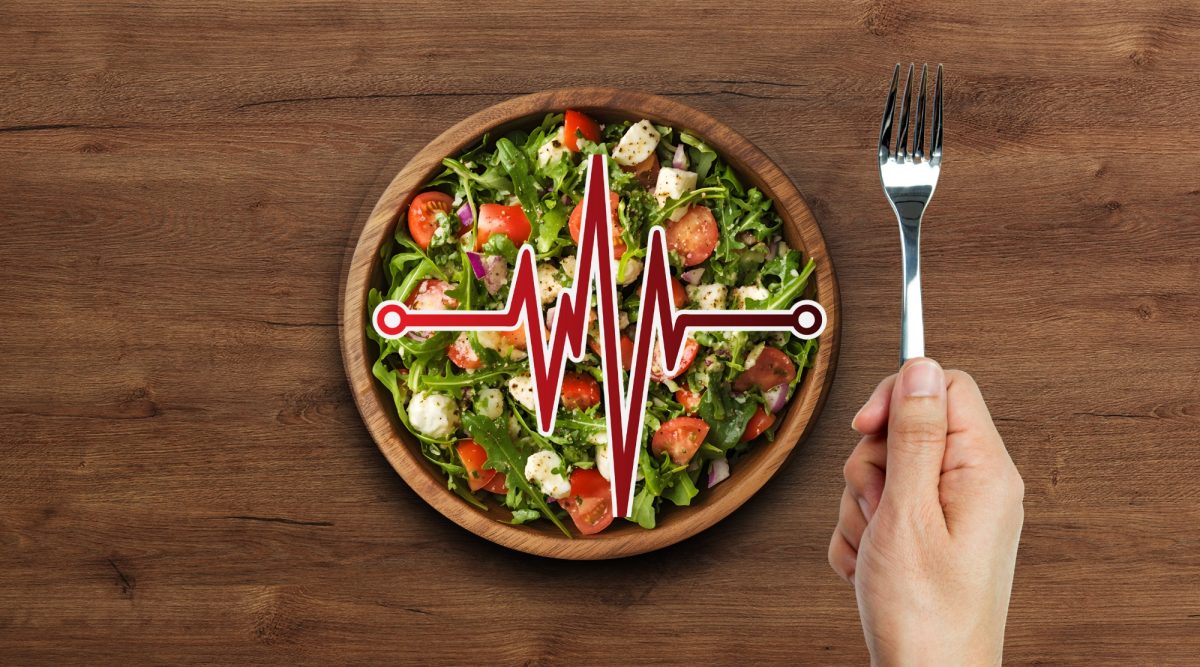
Graphic by Jackson Lindstrom
Diet is more important than you think and is directly related to the number one killer of people in the entire world; cardiovascular disease.
One person dies every 34 seconds from heart disease, and is the leading cause of death for all people, according to a Oct. 24, 2024 U.S. Centers for Disease Control and Prevention (CDC) webpage.
Heart disease is not one specific disease but a category of diseases such as coronary artery disease, congenital heart disease, heart rhythm disorders, and heart failure, according to the Heart and Stroke Foundation of Canada.
We’ve all heard about how what we eat is important for our health, but it is not always clearly communicated why.
I started learning about nutrition and fitness as a hobby, mainly because I wanted to look good in the mirror.
As it turned out, being active and eating healthy foods isn’t just about looking good, it’s also about preserving your future, and one of those ways it does this is by preventing things like heart disease, particularly the most common form, coronary artery disease.
Risk factors for coronary artery disease include obesity, not exercising, poor diet quality, and smoking, according to an Aug. 13, 2024 Mayo Clinic webpage.
High blood pressure, high cholesterol, and poor sleep habits also contribute to most kinds of heart disease, according to the same webpage.
An unhealthy diet, not exercising, smoking, and obesity also contribute to high cholesterol, according to the American Heart Association.
So why is heart disease so bad? Of course, we don’t want our heart to be diseased, but what are the actual outcomes of heart disease?
The most common heart disease, coronary artery disease, is often caused by atherosclerosis, the buildup of plaque in the arteries that limits the amount of blood that can travel through the arteries to the heart, according to an Aug. 13, 2024 Mayo Clinic webpage.
Medically referred to as a myocardial infarction, a heart attack occurs when there is no blood flow to the heart, according to a 2024 Cleveland Clinic webpage.
When there is no blood flow to an organ, it begins to die and when the heart dies you are clinically dead, according to the same article.
This is the same thing that happens with an ischemic stroke, blood supply to the brain is interrupted, and tissues begin to die.
These are the two most common ways heart disease can either kill you, destroy your quality of life, or place you in critical condition.
When I started working out and eating healthy, sure, I lost some weight and put on some muscle, but it took a long time before I actually found out that this was how I was helping my body.
It’s not easy to eat healthy and get enough exercise, but there’s a high chance that it will literally extend your life.
The goal with being healthy shouldn’t be to hit a certain number on the scale or to show off on social media, the goal should simply be being healthy.
The mindset that you are literally extending your life by adhering to a healthy lifestyle provides the extremely valuable incentive of more time, something we only have so much of.
This is a much better incentive than having some arbitrary number as your weight or having an appealing look, as the chances are you won’t care about these things as much as you get older.
The ideal amount of exercise to aim for is 150 minutes of moderate intensity exercise or 75 minutes of vigorous intensity exercise per week, according to a World Health Organization webpage.
Both 150 minutes and 75 minutes may sound like a lot, but it really isn’t as much as it seems.
If you do 10 minutes of vigorous exercise every day, that’s 80 minutes, over what is recommended. If you can’t sacrifice 10 minutes each day for your own sake, you might have bigger things to worry about.
150 minutes of moderate intensity exercise isn’t too difficult to achieve either. Going on a walk, or adding ways to get in more walking to your daily life is the simplest way to achieve this goal.
If you don’t have 20 minutes every day to go on a brisk walk, you can add things to your daily activities, such as parking further away from the grocery store, taking your dog for an extra walk, or getting a treadmill at home to use when you watch TV.
Diet is a little more complicated, but the government offers an extremely useful tool called MyPlate.gov where you can cater your goals to science-based recommendations.
It might seem unimportant now, but your habits now have a real effect on your future.
It’s important to build good habits for when you’re older and aren’t able to adapt to change like you used to, just like it is important to take care of yourself.